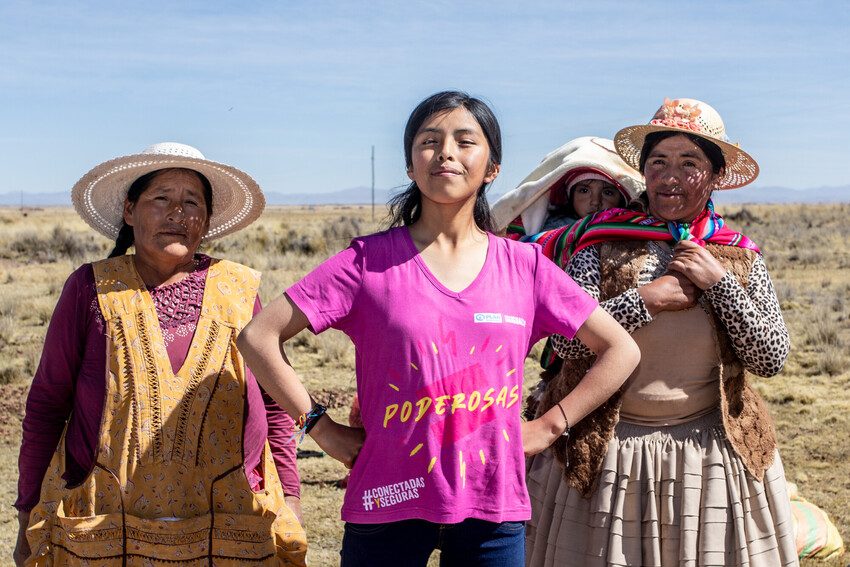Bolivia bans child marriage in a historic victory for girls
26 September 2025In a significant step forward for girls’ rights, the new law (no. 1639), enacted by the President of the Republic of Bolivia, bans child marriage and early unions without exceptions. The law enters into force as of September 25th.

The new law amends the previous law (no. 603), which eliminates the legal exceptions that previously allowed marriage and early unions from the age of 16.
“This change is a huge step forward for girls and adolescents in Bolivia. By removing legal loopholes, it makes clear that no girl should be married or forced to live with a partner before turning 18. It’s about protecting their health and well-being, and opening more chances for them to learn, grow, and build the futures they want,” said Carmen Elena Alemán, Regional Director of Plan International for Latin America and the Caribbean.
Legal exceptions exposed girls to child marriage
According to a study conducted by Plan International and UNFPA in 2020, 22% of Bolivian adolescent girls aged 15 to 19 had been married or in a union at least once, often in contexts of sexual violence and forced pregnancies.
In addition, the Office of the Ombudsman recorded more than 4,800 marriages and early unions of adolescents aged 16 and 17 between 2014 and 2024, highlighting the magnitude of the problem.
Plan International’s flagship State of the World’s Girls Report 2025 reinforces this urgency, revealing how child marriage continues to put millions of girls worldwide at risk of violence and missing education and other opportunities.
Until now, the law permitted exceptions through parental or judicial authorisation, which exposed thousands of girls to marriages or unions that were often the result of adolescent pregnancies or that led to school dropout and situations of violence and exploitation. The United Nations Committee on the Rights of the Child had repeatedly recommended that the Bolivian State eliminate these legal exceptions.
The approval of this reform is the result of historic joint efforts between civil society organisations, including Plan International, and legislators committed to protecting children, who contributed evidence and recommendations through the technical roundtable to permanently close these legal loopholes.
Laws alone are not enough
The new law is an important first step in building a safer environment for girls and adolescents. Plan International stresses that, although this is a fundamental advance, much remains to be done to prevent early informal unions and to transform the sociocultural patterns that cause and normalise them.
“Passing this law is a big step to protect girls and adolescents in Bolivia, but laws alone won’t end child marriage or early unions. Bolivia needs programmes that shift harmful social and gender norms, while also investing in education and making sure girls can access health care, justice, and real opportunities for their future. And we can’t forget the girls who are already married or living with a partner. They need support to claim their rights, get the services they deserve, and move forward free from violence and hardship,” added Carmen Elena.
With Bolivia’s recent law change, Latin America and the Caribbean welcome another country setting 18 as the minimum legal age for marriage, joining nations like Chile, Costa Rica, Panamá, El Salvador, Guatemala, Honduras, Colombia, Ecuador, Peru, and the Dominican Republic, with Plan International supporting efforts in the latter seven.
Categories: Protection from violence, Sexual and reproductive health and rights


